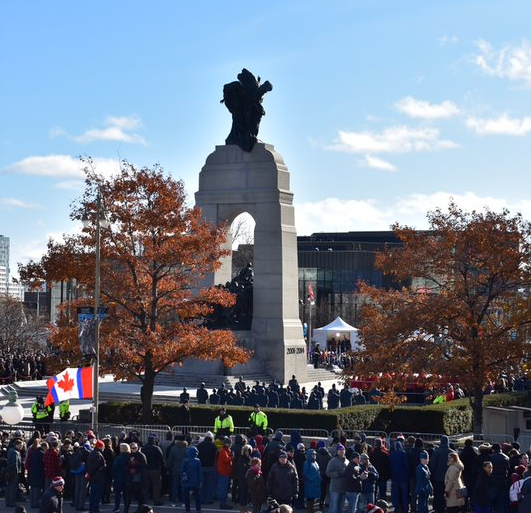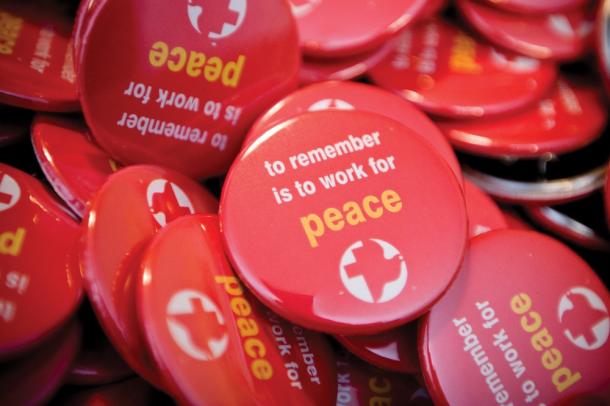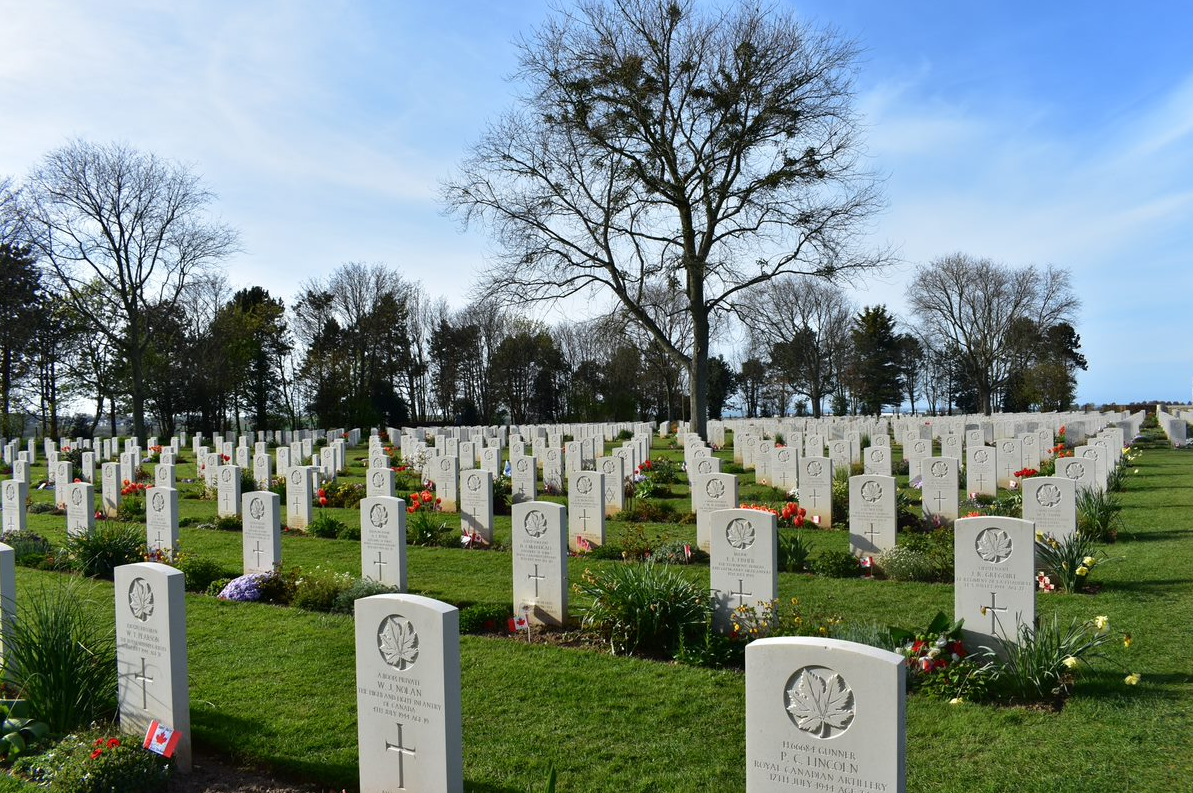
by Emma Kirke
Growing up in Ottawa, I was a member of the Ottawa Children’s Choir and regularly participated in the annual Remembrance Day ceremonies at the national cenotaph. After a chilly rehearsal at the crack of dawn, we would be shepherded to a government lobby to enjoy timbits and hot chocolate before participating in the full ceremony. We would sing our repertoire as gun salutes went off, snowbirds (of the fighter jet variety) flew overhead, and wreaths were laid.
Having had this experience as a child, I often reflect on why we were there and what was the message of the ceremony. Personally, I have always felt a connection to my grandparents. While they were too young to actively participate in WWII, they watched those dearest to them carry the toll of war for their entire lives. Living here at Grebel, I have been exposed to a wide variety of opinions about Remembrance Day. For example, the Mennonite Archives of Ontario spotlights stories of non-resistance and conscientious objectors. At the University of Waterloo, the Office of Indigenous Relations is hosting an observance ceremony on November 11 to honour, respect, and remember with Indigenous Veteran Arnold Albert.
Speaking with people who have fled war has made me realise that our ability in Canada to talk about war and peace hypothetically is a privilege. It is difficult to imagine a peaceful future when you are living in the midst of conflict and your future remains uncertain. While the West has benefitted from a ‘long peace’ since 1945, there have been between 150 and 300 armed conflicts in that same time period. And while the last armed conflict on Canadian soil took place over a century ago, this country continues to play a direct or indirect role in conflicts, including in Ukraine. As the MCC buttons say, 'To remember is to work for peace'. I believe that there needs to be a greater focus on peacebuilding in the national conversation around Remembrance Day each year.

In modern society, we have a strange attitude towards war. Our governments and much of civil society is all too happy to commemorate it and there is a significant appetite for war stories, movies, and games. Curiously, in the interwar years between the first and second world wars, only 5 percent of books published were pacifist, shaping the idea of conflict in the imaginations of the next generation to go off to war. Across the media landscape, large blockbuster movies like Top Gun and the Marvel universe have featured military war, reflecting an alliance between the military and media that has only grown since WWII. Meanwhile, Call of Duty is one of the most popular video games of all time.
Yet, for the most part, we have no desire to fight in wars and still feel the toll of war. When I travelled to Vimy, France to participate in ceremonies honouring the centennial anniversary of this battle, I learned about the iron harvest. Every spring in France and Belgium the thaw helps bullet fragments and other debris find their way to the surface. To simply forget about the conflicts that brought us to where modern society is today is not the answer to peace. Changing the way we commemorate conflict may be.
It is important that we consider that Remembrance Day ceremonies are for the living, however far away the conflicts we are celebrating seem. I have watched Remembrance Days undergo significant change since I was a child, particularly in tone during the federal government transition and with the greater inclusion of Indigenous voices. Greater inclusivity is an important part of ensuring that the stories we tell reflect the future we want for our country, and it also reflects the politics of the day.
Fundamentally, the factors that produce war such as fear, greed, and ideology will always be with us, wreaking havoc in new ways like the climate crisis or the rise of intolerant nationalist populism. As such, we cannot let all memories of war slip away because war is always with us. We need to know about its causes, impacts, how to survive it and how to end it. Instead of 21-gun salutes, we can honour those who gave so much by working to build peace in the spaces we find ourselves in, building mutual respect and understanding that carries us through challenging periods.
Every November, as the trees become dishevelled and the poppies appear, the lyrics of the hymns I sang as a child come back to me. In one song we sang, I Vow to Thee my Country, there is a lyric that dedicates “the love that asks no questions” to la mère patrie. I would argue that we instead best serve our country by asking questions of our past, present, and future. We do this to push our collective conscience towards a more peaceful one.
